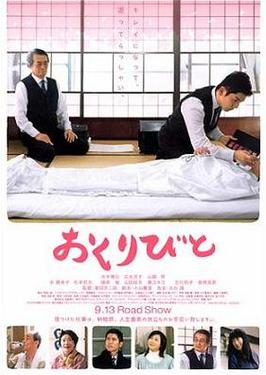The setting was intriguing too; Pi had no choice but to witness the law of the jungle on a small life boat, and watching him think of all the ways to survive with the tiger was exciting. I liked the scene where Pi runs out of food and reluctuntly kills a fish - he cries in guilt and gratitude. The image of the sea and sky at night time was beautiful with the shining fishes.
But the adventure is a bit repetitive and I sort of started hoping he would be saved soon. He was eventually saved on the shores of Mexico. But the story didn't end there. Pi had another story to tell. He had told us how the zebra and the orangutan had been killed by the hyena and how the hyena had been killed by the tiger, but he tells us another story in which the sailor, the cook, his mother and him get on the life boat. We all notice that the zebra is the sailor, the cook the hyena, his mother the orangutan, and Pi the tiger.
Pi then says: the result is the same; I lost my family and I was the only survivor of the shipwreck - which story was better?
I didn't get it. So was the latter the real story? Was this movie all about transforming a tragic story into a story of adventure? Is that how Indians talk? Or was the whole time he spent with the tiger a metaphor of a conflict within himself? I got the impression that he had really drifted on the ocean with the tiger but who knows?
But I was convinced when Pi said that life meant letting go of everything.
I was watching a variety show about love today while I was drying my hair after shower. They were talking about the chemical/biological trick of eternal love - dopamine, oxytocin, physical contact, salsa...
But then a "love counselor" called Rachel Greenwald was asked to watch a video of a Japanese girl and point out why she couldn't find a boyfriend. She made it seem like it was a huge problem that the girl was too busy buying a pack of tofu at the supermarket that she missed the guy who passed just by her. "She should've asked the guy which tofu is the best." Well, she was probably too busy buying a pack of tofu because she came to the supermarket to buy a pack of tofu. And she knows which tofu she wants.
But Greenwald kept pointing out all the "big mistakes" and the message I got was that if you really wanted a boyfriend, you had to be desperate, or in other words, accept sacrifice.
And that made me think. Because I think it's true that in most cases, we have to let go or give up something in order to get what we want. But if I had to choose between these two extreme scenarios:
Never finding a match after all the sacrifice - no time for hobbies, or even dreams I want to pursue - and regretting having sacrificed so many things,
and
Accomplishing nothing despite the fact that I sacrificed all the time to meet men to do what I want
the latter seems better. The result is the same; I end up with nothing; no partner, no dream/hobby/etc. accomplished. But being desperate for my own dream and failing would probably leave me with a sense of pride/satisfaction, while being desperate for someone/someone's love and failing would just make me miserable.
Then again, I guess it's also sometimes difficult to find what you really want to do in your life other than finding someone who you love and loves you back. It was a surprise to me that women all over the world were diligent readers of Greenwald's books, but maybe it's sometimes nice to hear it's okay to become desperate for men. -- You don't have to work so hard for your dream; you don't have to look for a hobby that makes you shine. It's right to be desperate to find someone who will give you everything. I don't know if that's what she says in her books, but maybe all that could feel comforting when/if I become tired of life.
In the end, we have to let go of everything. We can't always choose the best story with the best meaning. So it's good to know any scenario will do.

